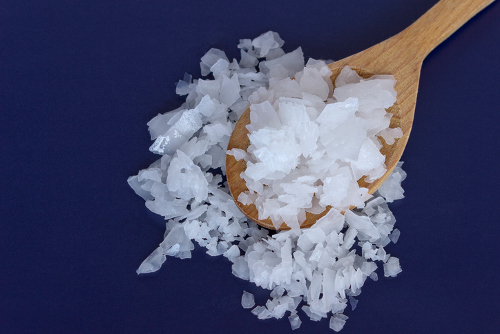 We often experience aches, pains, and the general feeling of being tired when we overextend ourselves, but these symptoms could also signal a magnesium deficiency. Our body depends on magnesium for more than 300 biochemical reactions. Without the necessary magnesium, we are prone to inflammation, gastrointestinal problems, osteoporosis, coronary heart disease, and even strokes. Magnesium oil may be the key to restoring your magnesium levels.
We often experience aches, pains, and the general feeling of being tired when we overextend ourselves, but these symptoms could also signal a magnesium deficiency. Our body depends on magnesium for more than 300 biochemical reactions. Without the necessary magnesium, we are prone to inflammation, gastrointestinal problems, osteoporosis, coronary heart disease, and even strokes. Magnesium oil may be the key to restoring your magnesium levels.
Read on to learn more about magnesium oil benefits and the various magnesium oil uses.
What Is Magnesium Oil?
In contrast to its name, magnesium oil is not an oil but the result of combining water with magnesium flakes to create an oily, paste-like substance. For centuries, magnesium has been used to heal health problems through mineral and mud baths, steam therapy, and compresses. Most research today calls for transdermal use as it is not absorbed well by our bodies when taken orally. In its pure form, it can also hinder many processes as it is not digested well. Transdermal magnesium therapy, or TMT, is a valuable tool to many medical professionals.
A 2010 study of the effects of TMT did show a 25% increase in magnesium at the cellular level after using magnesium oil for 12 weeks. Those involved used the mineral in spray and bath forms. You can also get magnesium in foods such as grains, fruits, vegetables, and dairy products.
10 Potential Health Benefits of Magnesium Oil
Magnesium assists in converting digested food into energy, maintaining bone cell structure, and allowing the absorption of key nutrients among hundreds of other functions. We’ll now discuss how the use of magnesium oil can potentially benefit you. While some of the following benefits have been supported by studies, the results aren’t always conclusive. It’s also important to consult with your physician before undertaking magnesium oil or any other dietary supplements.
1. May Strengthen Bones and Teeth
Teeth and bone health does not stop at development. We need to maintain strong teeth and bones for good health overall. One of the important minerals for this is calcium and our bodies need magnesium to properly absorb the properties of calcium.
2. May Improve Dental Health
In addition to maintaining strong teeth, magnesium oil spray is also used to reduce plaque and prevent gum disease. You can build up your mouth defense with a magnesium gargle as well.
3. May Provide Migraine Relief
A migraine episode can be linked to low levels of magnesium at the cellular level of neurotransmitters and receptors. By increasing your magnesium intake, you may experience less migraine attacks.
4. May Alleviate Pain
Painful extremities, restless leg syndrome, and even tendonitis can be treated with magnesium oil. A study published in the Journal of Physiology reported it can calm the chemical N-Nitrosodimethylamine (NDMA), which can cause pain sensation. Try using the oil to reduce pain of nerves and muscles as it can be an effective natural muscle relaxer.
5. May Heal Muscles
You can soothe sore, tired muscles just like athletes do with the use of magnesium oil. Acting as a muscle relaxant, the oil can target inflammation and accompanying pain. It is used in locker rooms and health spas by people of all physical ability.
 6. May Improve Sleep
6. May Improve Sleep
In keeping with the natural muscle relaxing property, magnesium oil can help you have a better sleep by targeting receptors in the brain and central nervous system. For this reason, it is advisable to use the oil in the evenings for treatment.
7. May Promote Healthy Skin
Attack oily skin problems and treat major skin conditions with the powerful properties of magnesium oil. As it breaks down fats and oil on the skin, magnesium oil can be used to treat eczema, rosacea, psoriasis, and seborrheic dermatitis. It may also relieve stress, which can promote acne and rosacea.
8. May Relieve Stress
In addition to preventing stress-related skin outbreaks, some studies have suggested magnesium oil can also be used to calm nerves in our brain, heart, and muscles. During stressful times, it is recommended to increase your magnesium intake.
9. May Lower Hypertension
Many heart issues can be attributed to a magnesium deficiency, including hypertension. Magnesium works with potassium to maintain a stable cardiac rhythm. Studies such as one in 2012, published in the European Journal of Clinical Nutrition, suggest magnesium is key in lowering blood pressure.
10. May Regulate Diabetes
Diabetes patients must be vigilant in maintaining magnesium levels as low levels are linked to insulin resistance and other complications. Magnesium oil may stimulate the properties of insulin in patients with poorly controlled diabetes.
The World Health Organization reports less than 60% of Americans meet the daily requirement of magnesium. The recommended daily amount is 300 milligrams on average. A regular diet intake usually only supplies us with less than 250 milligrams.
How to Use Magnesium Oil
To experience the full benefits of magnesium oil, it is best to continue using daily. Keeping a daily record of use and effects on ailments can help you determine the amount needed.
 1. Massage
1. Massage
Rubbing magnesium oil directly on the source of pain, tenderness, and discomfort, may give you immediate relief.
Help absorption of the oil with easy circular massage motions.
You can add wintergreen oil to the magnesium oil to relieve aches and pains due to sport activities.
2. Sprays
Using a spray bottle of the oil is a common application that may cause tingling sensations for the first few times. For best results, spray on body after a shower and leave on for 30 minutes before wiping or washing away excess oil.
3. Deodorant
Known as a natural odor eliminator, magnesium can be used as a deodorant. Add your favorite essential oil scent to the magnesium oil and spray on underarms. Do not apply magnesium oil after shaving as it may irritate the hair follicles.
4. Baths
If direct use of a spray gives you too much discomfort, add to a tub of hot or warm water for a leisurely soak. You can add aromatic essential oils.
5. Foot Soaks
To alleviate sore, tired feet, try adding magnesium oil to a foot tub of hot water.
You can purchase magnesium oil or create your own. Boil ½ cup filtered water and add ½ cup of magnesium chloride flakes, turning off the heat source. Stir until flakes are dissolved and pour into a bottle once cooled.
Magnesium is a vital mineral for maintaining regular body processes. Using magnesium oil to increase our low levels of magnesium can produce amazing health benefits and keep our well-being in check. From maintaining bone health to preventing serious health issues, magnesium oil is a natural source that has been used for centuries as mineral therapy. Many studies have shown its worth as therapy for pain caused by injuries and health disorders. You can reap the potential benefits through various applications.
Related:
- Essential Oils for Depression and How to Use Them
- Olive Oil for Skin: Benefits and How to Use
- Roman Chamomile Essential Oil Uses and Benefits
- Essential Oil for Arthritis: 10 Essential Oils That Help Relieve Arthritis Pain
- 10 Essential Oils for Nausea and How to Use Them
Sources:
Monaco, E., “13 Magnesium Oil Benefits (And a Final Verdict on Whether You Should Make Your Own),” Organic Authority, January 6, 2017; http://www.organicauthority.com/13-incredible-benefits-of-magnesium-oil-and-a-final-verdict-on-whether-you-should-make-your-own/, last accessed March 1, 2017.
“Magnesium,” The National Institutes of Health Office of Dietary Supplements; https://ods.od.nih.gov/factsheets/Magnesium-HealthProfessional/, last accessed March 1, 2017.
